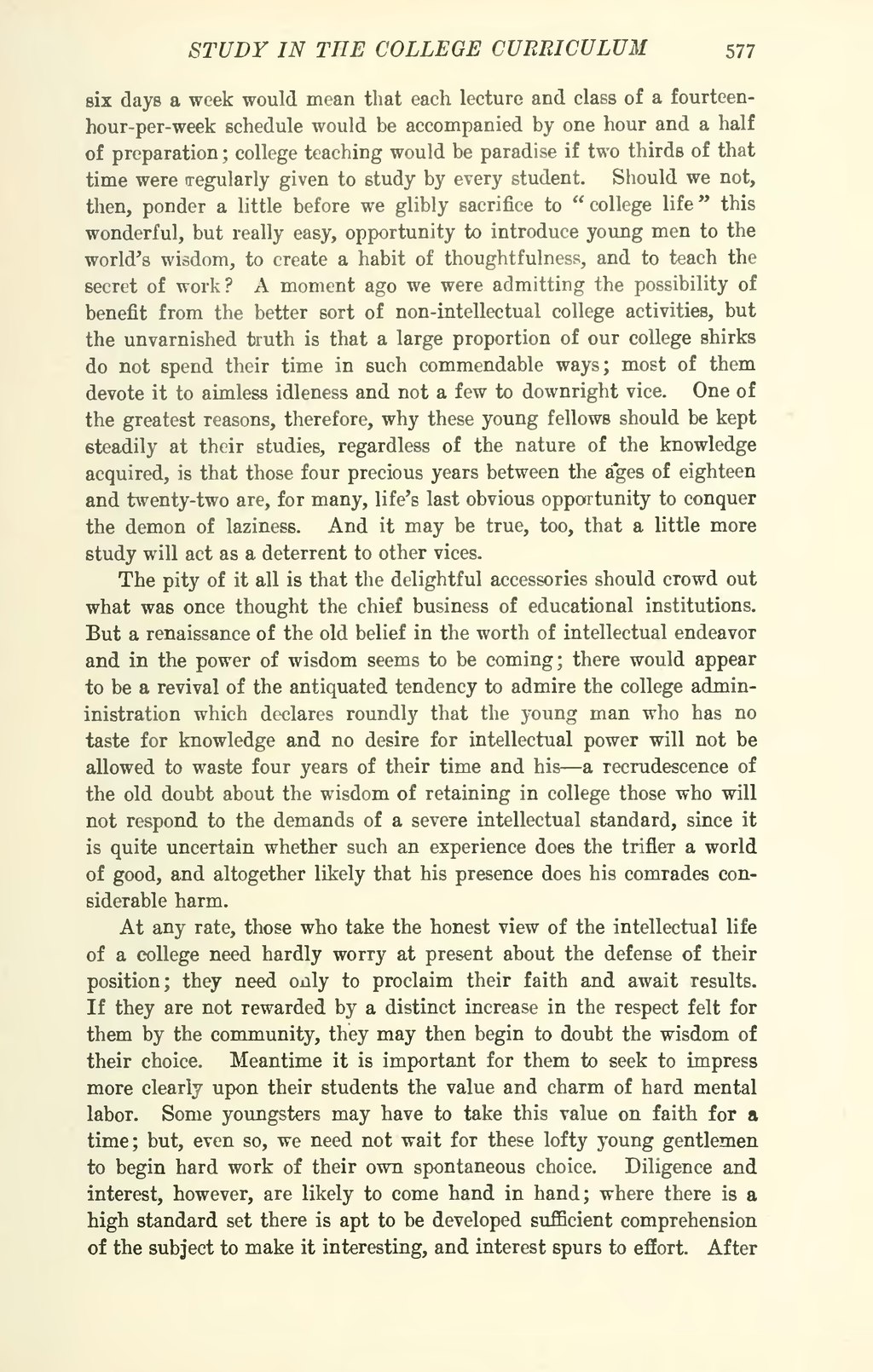six days a week would mean that each lecture and class of a fourteen-hour-per-week schedule would be accompanied by one hour and a half of preparation; college teaching would be paradise if two thirds of that time were regularly given to study by every student. Should we not, then, ponder a little before we glibly sacrifice to "college life" this wonderful, but really easy, opportunity to introduce young men to the world's wisdom, to create a habit of thoughtfulness, and to teach the secret of work? A moment ago we were admitting the possibility of benefit from the better sort of non-intellectual college activities, but the unvarnished truth is that a large proportion of our college shirks do not spend their time in such commendable ways; most of them devote it to aimless idleness and not a few to downright vice. One of the greatest reasons, therefore, why these young fellows should be kept steadily at their studies, regardless of the nature of the knowledge acquired, is that those four precious years between the ages of eighteen and twenty-two are, for many, life's last obvious opportunity to conquer the demon of laziness. And it may be true, too, that a little more study will act as a deterrent to other vices.
The pity of it all is that the delightful accessories should crowd out what was once thought the chief business of educational institutions. But a renaissance of the old belief in the worth of intellectual endeavor and in the power of wisdom seems to be coming; there would appear to be a revival of the antiquated tendency to admire the college admininistration which declares roundly that the young man who has no taste for knowledge and no desire for intellectual power will not be allowed to waste four years of their time and his—a recrudescence of the old doubt about the wisdom of retaining in college those who will not respond to the demands of a severe intellectual standard, since it is quite uncertain whether such an experience does the trifler a world of good, and altogether likely that his presence does his comrades considerable harm.
At any rate, those who take the honest view of the intellectual life of a college need hardly worry at present about the defense of their position; they need only to proclaim their faith and await results. If they are not rewarded by a distinct increase in the respect felt for them by the community, they may then begin to doubt the wisdom of their choice. Meantime it is important for them to seek to impress more clearly upon their students the value and charm of hard mental labor. Some youngsters may have to take this value on faith for a time; but, even so, we need not wait for these lofty young gentlemen to begin hard work of their own spontaneous choice. Diligence and interest, however, are likely to come hand in hand; where there is a high standard set there is apt to be developed sufficient comprehension of the subject to make it interesting, and interest spurs to effort. After
